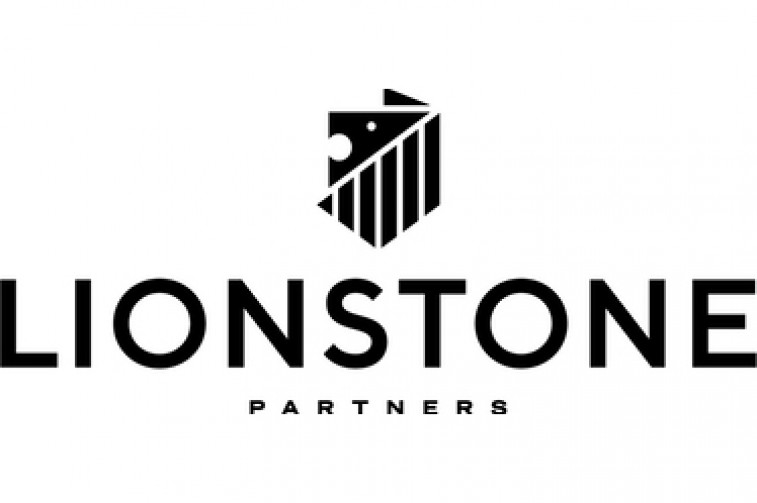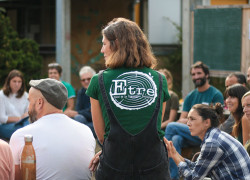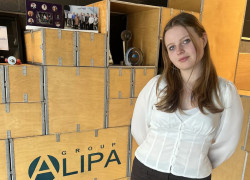Lionstone Real Estate Partners: Made in Luxembourg
Due to the favourable regulations, tax environment and connectivity, Luxembourg is often considered as one of the world’s most important centres for investment funds related activities.
Although many firms and funds base their back office in Luxembourg, only a few actually directly invest in domestically situated assets. The stable growth of Luxembourg’s economy and the resistance to international market fluctuations provide for sustainable growth and low risk opportunities.
Luxembourg as a fund hub
Founded in 2019, Lionstone Real Estate Partners is a Luxembourg based, active real estate investor, which focuses on the Dutch and Luxembourgish residential markets. The choice for Luxembourg as the fund’s home base was a deliberate one. High real estate prices and easy access to capital provide for viable margins in property developments and moderate exposure. Furthermore, Luxembourg’s proximity to fund service providers accelerated the fund’s set up time and reduced costs. With the use of VP Fund Solutions’ assistance, Lionstone Real Estate Partners was set up in less than four weeks, which is significantly faster than the average.
A dual strategy
Lionstone Real Estate Partners derives the first part of the fund’s name from the Dutch and Luxembourgish lion shaped crest symbolising the two AAA countries where Lionstone’s investments are located. The fund uses a dual strategy focusing on the underserved niche market of small to medium sized assets, often too small for foreign institutional investors and too big for local players acting with limited financing. By diversifying the portfolio over two countries, the fund aims to achieve a long-term capital growth on their investments.
In Luxembourg, the fund invests in residential development projects in A-locations with an on-going special development plan or an existing building permit. It is not intended to invest in properties to achieve rental yields. Projects are either fully developed or sold with existing building permits. A key characteristic of this strategy is Lionstone’s wide network in Luxembourg, avoiding costly bidding processes.
In the Netherlands, the strategy is to invest in existing residential property portfolios in economically robust locations with a sound infrastructure. Lionstone aims to buy offmarket portfolios with an above-average rental yield and to optimise these through active property management. Natural tenant turnover allows Lionstone to refurbish
vacant dwellings and to sell them at a market price above the fund’s initial purchase price achieved through bulk deals.
The combination of steady rental income and high yield development projects provide for a balanced portfolio with expected double-digit annual returns.
Rental vs buyer’s markets
By analysing both real estate markets, significant differences come to light in respect to their earning potential. A combination of macro trends, regulations and consumer preferences make a dual strategy highly complementary.
In Luxembourg, the demand is exceeding the supply of new housings since years, making it a strict buyer’s / seller’s market. During the past thirty years, the population has grown by 63.4% and continues to grow by over 2.5% annually, outpacing new residential developments by a wide margin. The consequential disconnect of the market has led to ever increasing real estate prices. Over the past ten years, prices of existing and new-build houses and apartments have increased at a rate of 4.7% per year with no signs of slowing down. As the demand for housing still outpaces the current supply, high margins can be made from new developments. Although initial capital requirements are higher compared to neighbouring countries, the subsequent resale prices pave the way for more attractive returns. To achieve the same returns on rental units, one needs to set the rent at record prices due to the market’s high capital requirements.
Furthermore, government regulations make house ownership favourable to rentals with a deductibility on personal income taxes and allowance for higher rates of debt funding. House ownership in Luxembourg is therefore at the highest levels in Europe at 86.1%, compared to 69.8% in the Netherlands.
The Dutch market is a hybrid market where both rental and house ownership is common. Dutch real estate prices outside of Amsterdam have increased at a lower rate than those in the Luxembourgish market. The lower prices allow for moderate rental prices while still obtaining viable yield levels. Most of the rental properties in the Netherlands contain regulations on rent increases tied to the consumer price index. Due to this policy, real estate investments in the Netherlands are a solid hedge against inflation.
Besides the rental income, the Lionstone portfolio derives returns on the capital gains secured through a discounted initial purchase price of large portfolios. Not only does this increase the rental yields, but natural tenant turnovers free up individual dwellings which are sold at market value. Lastly, the Dutch property prices have been increasing
at 10.2% in 2018 alone. With favourable macro conditions, such as increasing budget surpluses, population growth and current housing shortages, the bull market in Dutch housing does not seem to end soon.
The road forward
In the fund’s few months of existence, it has managed to onboard over 20 investors and made 6 real estate acquisitions ranging from development projects in Luxembourg to residential portfolios consisting of 150 dwellings in the Netherlands. Several additional deals are currently lying in the pipeline and are in the process of being analysed. Until
the liquidation of the fund in the end of 2025, the fund aims to maximise its value while keeping the income streams diverse to limit the fund’s exposure to potential market fluctuations. The fund takes on investors until the end of 2019 after which the complete focus will lie on the value maximisation to the committed investors.
Communiqués liés
Réseau ETRE est le nouveau lauréat du Degroof Petercam Fou...
Réseau ETRE remporte la sixième édition du Degroof Petercam Foundation Award....
Le Groupe ALIPA accueille une étudiante dans le cadre du Jo...
ALIPA Group, spécialiste du levage et de l’emballage industriel, a accueilli ...
Quintet lance le premier d’une série de nouveaux fonds e...
La banque privée européenne lance un fonds d’actions américaines sous gesti...
Gcore opens the first H100-based data center in Korea - Part...
Gcore the global edge AI, cloud, network, and security solutions provider, will ...
ALD Automotive Luxembourg devient Ayvens
ALD Automotive / Leaseplan dévoile aujourd'hui Ayvens, sa nouvelle marque de mo...
Eurasian Resources Group to Donate 500 Million Tenge to Floo...
Eurasian Resources Group (ERG), a leading diversified natural resources group he...
Il n'y a aucun résultat pour votre recherche







